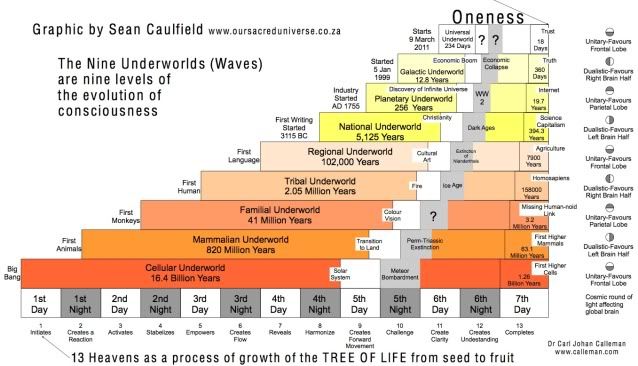
Moderators: Elvis, DrVolin, Jeff


May 9-11, 2009
As the established international monetary system collapses in the sixth night things can go essentially in either of two directions. It will go either in the direction of a grass roots organization of a new economy without banks, interests or growth serving to create a world without dominance. A collapse of the international monetary system, especially if it is linked to a moratorium of all debts, holds the potential of paving the way to a world that is truly egalitarian, based on willful cooperation and where greed will not destroy the world. This of course precludes the existence of a banking and monetary system organized in the interest of a minority and driven by the craving for abstract values rather than human needs.
TOKYO, March 9 (Reuters)Strong quake hits N. Japan, tsunami warning issued
Leaked Memo: The Corporate Board Rooms Fear the Occupy Movement Occupying their Board Rooms Targeting Individual Executives
By Kevin Zeese - Posted on 19 October 2011
Below is a memorandum leaked to the Freedom Plaza occupation of Washignton, DC that comes from a corporate consultant and shows the fear they are developing of the occupy movement. The memorandum from Fay Feeney a member of the National Association of Corporate Directors describes how corporations should prepare to combat the Occupation Movement.
Corporations fear their leaders being held personally accountable for the actions of concentrated corporate interests. They especially fear their names, addresses being known and their board rooms being invaded by OccupyTheBoardroom.org.
Feeney suggests: "suggests that board members and corporate counsels prepare themselves for a bumpy ride by future-proofing their companies." Among the steps taken to protect themsevles is to use social networks to gather intelligence so "board chairs and CEOs should always remain one step ahead in protecting their boardroom."
These executives should be afraid. There is a legitimate anger at the unfairness of the economy. Where the 400 wealthiest Americans have wealth equal to 154 Americans, while paying an average of 17.4% in federal taxes. Many working Americans pay double that rate. The unfairness in the economy and economic insecurity of Americans is energizing this movement and people will want those who collapsed the economy for their personal and corporate profits to be held accountable.
Kevin Zeese
I’ve been watching the Occupy Wall Street for implications on the boardroom.
This weekend a site was launched called Occupy the Boardroom. I’m sending
you a recent article from Corporate Secretary Magazine that contains guidance
on this issue. I’ll be keeping an eye on this movement at www.riskforgood.com/blog.
Occupy Wall Street Moves to The Boardroom
Here’s what corporate counsels, board chairs and CEOs should know.
As the Occupy Wall Street (OWS) protesters are hitting the streets worldwide,
another movement is quietly unfolding online: OccupyTheBoardroom.org (OTB).
The new coalition surfaced on Saturday with the intention of delivering the
messages of those who were hurt by the recession to the CEOs of top financial
institutions such as Goldman Sachs, Morgan Stanley and Wells Fargo. There are
currently over 200 CEOs listed on the website, including Lloyd Blankfein, chief
executive of Goldman Sachs, Vikram Pandit, CEO of Citigroup, and Mukesh
Ambani, a Bank of America board member.
‘The 1 percent have addresses. The 99 percent have messages,’ the website says.
The idea is the ‘1 percent’ reflects board members while the 99 percent are those
willing to have their voices heard. Users can access a list of CEOs and share their
stories regarding bankruptcy, job losses and unfair treatment. According to OTB
(which claims it has the contact information for all members listed), prizes will
be awarded to ‘the best, funniest and most revelatory interactions.’
Moreover, the website promises to ‘hand-deliver’ the stories to the executive
selected by a user. All messages, videos and images will be publicly viewable.
The coterie has already received close to 2,300 tweets and 5,000 ‘likes’ on Facebook.
‘The anger, frustration and collective voice is too large to ignore,’ says Fay Feeney,
a corporate board consultant who provides board chairs with advice on ways to
improve boardroom performance. ‘This [OTB website] is personal and targeted to
what you earn (along with power and influence) [and] banks are among the first
businesses to be called out, occupied and disrupted.’
As the OWS protests continues to morph into a massive movement, Feeney
suggests that board members and corporate counsels prepare themselves for a
bumpy ride by future-proofing their companies:
i. Get your crisis communication plan ready – protect your reputation and brand
ii. Get OWS on your risk map and board agenda. Evaluate the business opportunity
and assess the impact on your business strategy, competitors, clients, employees
and on your CEO and directors.
iii. Take action now! It is not too early to begin counteracting the impact this
movement could have on your business.
iv. Listen: By using social media, you can begin to gather business intelligence
specific to your business.
Protests can spin out of control, and with real time data processing from Twitter,
Facebook and other social networking sites, getting a message across is now faster
than ever. Governance professionals, board chairs and CEOs should always remain
one step ahead in protecting their boardroom, Feeney says.
DrVolin wrote:What ties the OWS protestors and their oppressors is a new and organic fear of the immediate future. What separates them is the method they use to confront it.


Users browsing this forum: No registered users and 188 guests